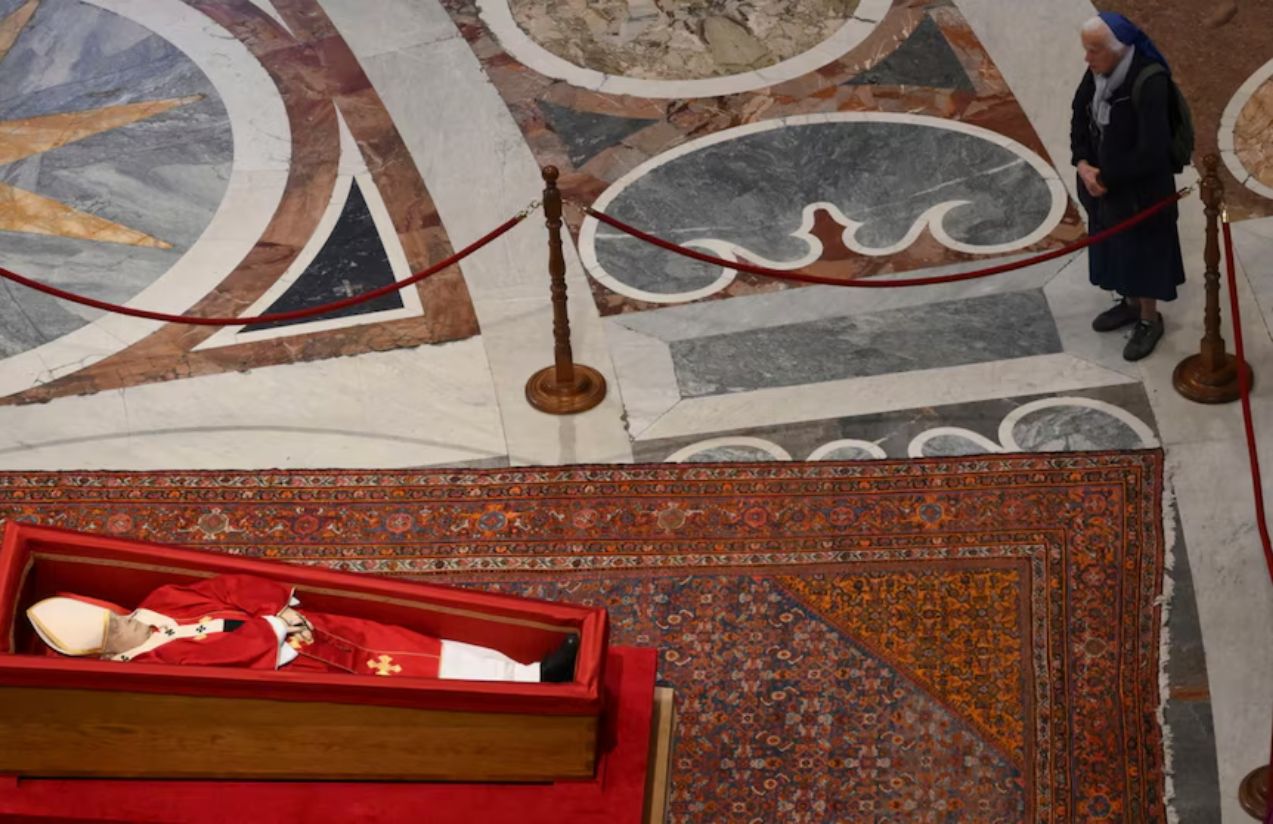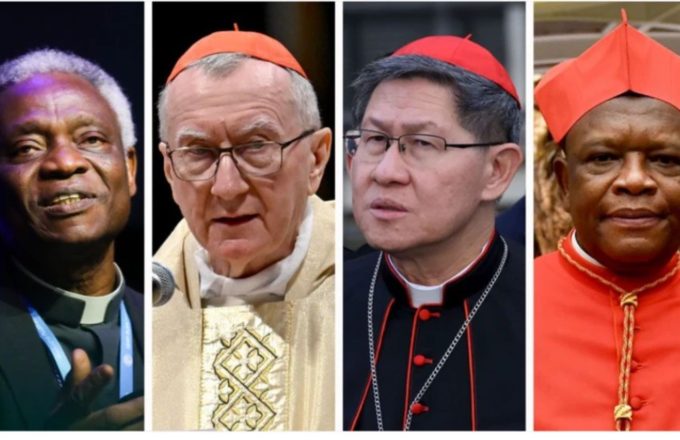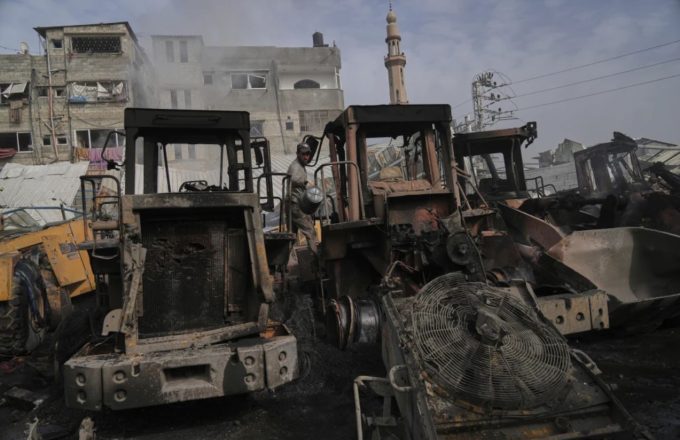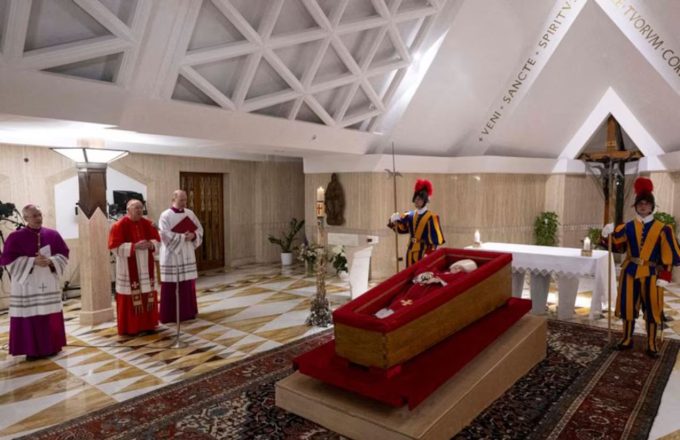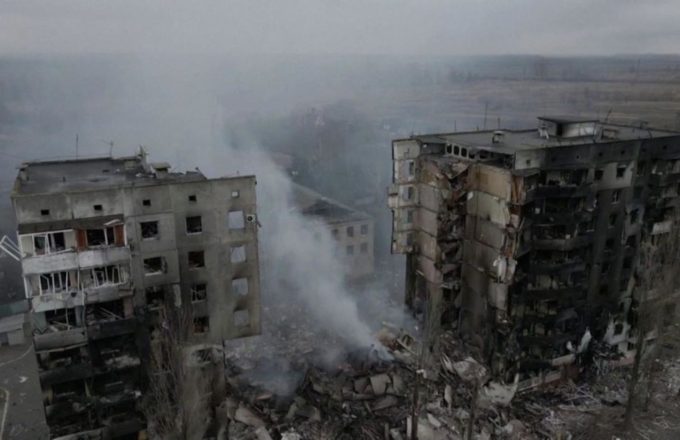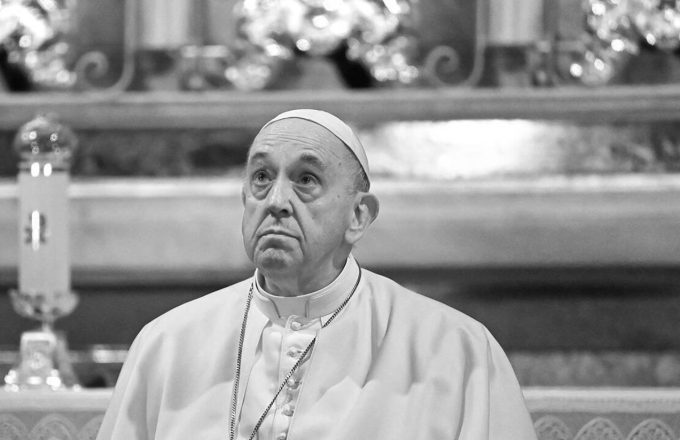Amid the solemn farewell ceremony for Pope Francis, one moment stood out with quiet intensity. While cardinals and bishops gathered around the Pope’s casket, an unexpected figure stepped forward: Sister Geneviève Jeanningros, an 81-year-old French nun and niece of Léonie Duquet—one of the nuns who disappeared during Argentina’s last dictatorship under Alfredo Astiz.
“She stood still for several minutes, gazing sadly at the Pope’s body. None of the gendarmes or Swiss guards even considered stopping her,” wrote journalist Hernán Reyes Alcaide in Infobae. Reyes, who covered Francis’ entire decade-long pontificate, witnessed the moving scene firsthand.
According to the Spanish news agency EFE, Sister Geneviève was not part of the strict list of those permitted to approach the casket—limited to high-ranking Church officials. But breaking protocol, she moved forward with her green backpack on her shoulders, paused at the side of the casket, bowed in prayer, and remained there in silence, tears streaming down her face. No one dared interrupt her. It was a moment as raw as it was powerful.
A member of the Little Sisters of Jesus, Sister Geneviève has spent over 50 years working with Rome’s marginalized communities—particularly transgender women and fairground workers in the Ostia neighborhood. Alongside fellow nun Anna Amelia Giacchetto, she lived in a caravan, sharing her life and space with those she served.
Reyes Alcaide notes that she became a vital bridge between Pope Francis and groups often ignored by society. She facilitated meetings between the Pope and human rights leaders, as well as with trans women living on the outskirts of Rome. Not only did Francis welcome them into the Vatican, but he also shared meals with them and offered financial support.
From the beginning of her vocation, Sister Geneviève accompanied trans individuals to papal audiences, earning a reputation for her deep compassion and tireless advocacy. The Pope affectionately nicknamed her L’enfant terrible—a nod to her strong character and unwavering commitment to the least among us.
Their bond was deep and genuine. Francis found in her a devoted partner in his mission to reach society’s outcasts. She played a key role in opening his eyes to the harsh realities faced by fairground workers and transgender sex workers in Rome’s suburbs. On several occasions, she brought these groups directly to the Vatican. “One of them was murdered shortly after meeting the Pope. They had taken a photo together, I brought it to him, and he prayed for her,” Sister Geneviève told Vatican media.
During the COVID-19 pandemic, as many in these communities lost their livelihoods, Sister Geneviève became a vital lifeline. Together with Father Andrea Conocchia from Torvaianica, she sought help from Cardinal Konrad Krajewski, the Vatican’s almoner, to provide aid to fairground workers and the trans community. Her work never wavered.
Thanks to her tireless efforts, in July 2024, she accomplished something extraordinary: Pope Francis visited the amusement park in Ostia to meet with the fairground workers—a historic gesture that left a lasting mark on those present.
Her presence beside the Pope’s casket wasn’t just a farewell—it was a reaffirmation of everything they stood for together: faith as a force for justice, compassion as a compass, and dignity as a right. In the midst of a rigid ceremonial farewell, her spontaneous tribute spoke volumes about friendship, love, and a life lived in service to others.
Sister Geneviève said goodbye to her friend, her fellow advocate for the forgotten. And she did so just as she had always lived: with her backpack on, a heart full of purpose, and love that needed no permission.


